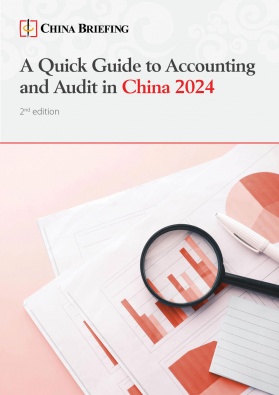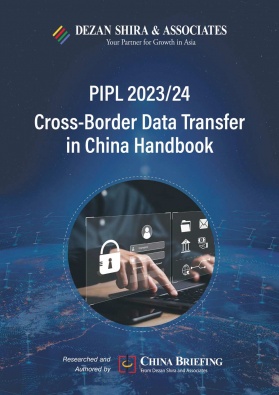China Monthly Tax Brief: January 2024
In this monthly China tax brief, we highlight January 2024 policies and measures announced for supporting businesses, expanding market access, facilitating cross-border tax payment and refund, and increasing tax certainties.
STA clarified the tax filing and payment deadlines for the year 2024
The State Taxation Administration (STA) has released the Circular of the General Office of the State Taxation Administration on the Tax Filing and Payment Deadlines for 2024, clarifying the tax filing and payment deadlines for taxpayers who are required to complete tax filing and payment within 15 business days upon the end of each month or quarter.
|
China Tax Filing and Payment Deadlines for 2024 |
||
| Month | Date | |
| January | January 15 | Monday |
| February | February 23 | Friday |
| March | March 15 | Friday |
| April | April 18 | Thursday |
| May | May 22 | Wednesday |
| June | June 19 | Wednesday |
| July | July 15 | Monday |
| August | August 15 | Thursday |
| September | September 18 | Wednesday |
| October | October 24 | Thursday |
| November | November 15 | Friday |
| December | December 16 | Monday |
To learn more about what taxes are subject to these tax filing and payment deadlines and download the “China Tax Filing and Payment Deadlines for 2024” in calendar format, please read our China Briefing article here: China Tax Filing and Payment Deadlines for 2024
Key financial and tax implications of the new Company Law
China’s legislature has adopted an amendment to the country’s Company Law, passing sweeping changes to company capital rules, corporate governance structures, liquidation procedures, and shareholder rights, among others. The new version of the Company Law will come into force on July 1, 2024.
The new version of the China Company Law will have significant implications for companies in China. Below we analyze the impact of the law from a tax and financial perspective.
| Tax Implications of the Amendments to the Company Law | ||
| Amendments to the Company Law | Potential tax implications | |
| Capital contribution form | Article 48 of the new Company Law adds that shareholder may make capital contributions in stock rights and creditor’s rights, in addition to the previously forms, including cash, or in kind, intellectual property rights, land use rights, and other non-monetary properties that can be valued in currency and transferred legally. | If an individual shareholder transfers his equity to a newly established company as capital contribution, he shall pay Individual income tax (IIT) in accordance with Article 17 of the Regulations for the Implementation of the Individual Income Tax Law of the People’s Republic of China on income from property transfer.
If the transferor is a company, the company will be subject to corporate income tax (CIT) based on normal tax treatment or special tax treatment. The transfer of creditor’s rights is also subject to income tax according to law. And capital contribution by creditor’s rights in the form of bonds (state bonds, local government bonds, financial bonds and corporate bonds) shall be regarded as financial products transfer and thus subject to value-added tax (VAT). In the process of transferring assets such as equity and creditor’s rights, it may also involve debt restructuring between enterprises, and the tax treatment involved is more complex. Meanwhile, capital contribution in non-monetary assets is eligible for certain preferential tax treatment. Enterprises should strictly abide by the relevant regulations and do tax planning work in advance.
|
| Capital contribution terms | Article 47 of the new Company Law requires stipulates shareholders of a Limited Liability Company (LLC) must pay their subscribed capital in full within five years of the company’s establishment. Previously, there is no time limit for the capital contribution. | For enterprises that have not paid enough capital, the amount of loan interest that cannot be deducted before tax needs to be more accurately accounted for.
Where an enterprise investor fails to pay in full the amount of its capital payable within the prescribed time limit, the interest incurred on the external loan of the enterprise is equivalent to the interest payable for the difference between the amount of capital paid in by the investor and the amount of capital payable within the prescribed time limit, which is not a reasonable expenditure of the enterprise and shall be borne by the enterprise investor and shall not be deducted when calculating the taxable income of the enterprise. |
| Equity transfer | Article 88, Paragraph 1 of the adds that where a shareholder transfers the equities for which capital contributions have been subscribed for but the time limit for capital contribution has not expired, the transferee shall bear the obligation of making such capital contribution. If the transferee fails to make a capital contribution on time and in full amount, the transferor shall bear the supplementary liability for the overdue capital contribution of the transferee. | The obligation of the transferee to assume the contributions for the transferor should be considered as part of the consideration for the equity transfer when calculating capital gains, and corresponding IIT or CIT should be paid.
|
| Capital reduction | Article 214 adds that the reserve of a company shall be used for making up losses. Where the reserve of a company is used for making up losses, the discretionary reserve and statutory reserve shall be firstly used. If losses still cannot be made up, the capital reserve can be used according to the relevant provisions. | On the one hand, after making up losses with capital reserve, the overall tax burden of enterprises may increase. This is because after making up losses, the company will also have taxable income in the following profit years, as compared to when the company still has losses on record.
On the other hand, it’s yet to be clarified whether using capital reserve to make up losses itself is taxable or not. |
Against the backdrop of the new Company Law, companies, shareholders, and creditors will face new tax implications. Before committing capital to a new company, deciding the contribution form, deciding to buy or sell the equity in a company, or planning to reduce capital for making up losses, companies and individual investors are advised to carefully consider the corresponding tax implications and adopt a cautious yet proactive approach for tax planning and financial strategy development.
To read more about the amendments to the Company Law, please read: China’s Revised Company Law in Effect from July 1, 2024: Key Details Here
Notice on cross-border tax and fee collection and refund management
On January 4, 2024, the People’s Bank of China, the MOF, and the STA jointly issued the Notice on Matters Related to the Management of Cross-Border Tax and Fee Collection and Refund Business (the Notice), which will take effect on February 18, 2024. This Notice aims to further standardize cross-border tax and fee collection and refund operations, enhance the convenience of cross-border tax payments, and optimize the business environment.
It is noted that cross-border tax payment into the treasury is divided into two types: cross-border tax payment into the treasury in foreign currency and cross-border tax payment into the treasury in RMB. Cross-border taxes can be paid into the treasury by the Treasury Information Processing System (TIPS) or through transfer. If the TIPS method is adopted, the payer needs to declare taxes to the tax authorities, and tax payment can be made and queried at the bank’s end. If the method of transfer is selected, the payer needs to declare taxes to the tax authorities, and the tax authority will then notify the payer to accurately fill out the relevant information of the remittance voucher.
| Cross-Border Tax and Fee Payment and Refund Process for Non-Resident Taxpayers | |
| Payment | Refund |
Payment TIPS:
Payment by transfer:
|
Applicants initiate a refund request. After the tax authority approves the refund application, they issue a tax revenue refund certificate and related documents, submitting them to the relevant Treasury.
After verification by the Treasury, the refund procedures are completed, and the remittance information is transmitted to the Treasury’s collection office. The refund funds are then transferred to the Treasury’s collection office.
The Treasury’s collection office is required to transfer the funds (after deducting exchange fees) to the overseas taxpayer’s account on the same day or the next morning after receiving the remittance information and refund funds. |
In the past, when non-resident taxpayers made cross-border tax payments, especially in cases involving paying taxes in foreign currencies, fluctuations in the exchange rate between the time of exchange and the actual payment often led to various issues.
For instance, if the RMB-denominated tax payment, after conversion, did not meet the declared tax amount due to exchange rate fluctuations, the tax authority could not issue a complete tax payment certificate.
Conversely, following the currency exchange, if there was a surplus in the RMB-denominated tax payment after deducting relevant exchange fees, it often involved a lengthy process to apply for a refund, with refund procedures proving challenging.
The Notice alleviates such problems of non-resident taxpayers overpaying taxes due to exchange rate issues, by providing clarity and convenience for non-resident taxpayer’s tax payments and facilitating timely and effective refunds.
Revised guidelines on tax policies for stabilizing foreign trade and attracting foreign investment
On January 16, 2024, the STA released the Guidelines on Tax Polices for Stabilizing Foreign Trade and Foreign Investments (Revised).
The revised Guidelines encompasses a total of 51 specific measures, with 19 pertaining to tax policies related to stabilizing foreign trade, including export goods and services tax policies, cross-border taxable activities VAT policies, tax policies for new forms of foreign trade, and facilitation measures for export tax (exemption) services. Additionally, there are 32 tax policies related to stabilizing foreign investment, including policies to encourage foreign investment.
Compared to the guidelines released in June 2022, the updated version introduces content related to policies aimed at attracting foreign individuals and the tax policies for cross-border e-commerce export return and disposal of goods.
Compiling and timely updating these policy measures will not only make it easier for taxpayers to understand and enjoy the policies but also signals continuous efforts to promote foreign trade and encourage foreign investment. It will help to boost market confidence and improve business environment.
Extension of tariff exclusion measures on US goods
In accordance with the “Announcement of the State Tariff Commission of the State Council on the Eleventh Extension List of Exclusions from Additional Tariffs on US Goods“, the eleventh extension list of exclusions from additional tariffs on US goods will be extended to July 31, 2024. The eleventh extension list was originally scheduled to expire on December 31, 2023.
Specifically, from January 1, 2024, to July 31, 2024, the tariffs on the goods listed in the exclusion extension list will continue to be exempted from additional tariffs imposed by China in response to U.S. Section 301 measures. This decision aims to prolong the preferential treatment for the specified goods, safeguard China’s economic interests, and provide more time for the resolution of trade disputes.
Tax policy adjustments and market access expansion in Hengqin Cooperation Zone
The National Development and Reform Commission (NDRC) and the Ministry of Commerce has jointly released a set of measures targeting the Guangdong-Macao Cooperation Zone in Hengqin (hereinafter referred to as “Hengqn Cooperation Zone” or “cooperation zone”).
This comprehensive set of guidelines, titled Introducing Special Measures to Support the Guangdong-Macao In-Depth Cooperation Zone in Hengqin in Broadening Market Access (hereinafter referred to as the “new measures”), are strategically designed to boost the economic development of the cooperation zone, encompassing key areas such as modern finance, culture and tourism, sci-tech innovation, professional services, and pioneering methods for market access in the medical and health fields.
The plan echoes a broader project, comprising a Three-Year Action Plan for the whole Greater Bay Area (GBA) to make it a favorable environment for cross-border businesses and investments.
These measures include:
- Optimizing market access to the financial sector
- Supporting financing through innovative resources
- Promoting alignment with green financial standards
- Easing market access in areas such as culture and tourism, technology innovation, pharmaceuticals, and healthcare
In line with the overall plan for the construction of the Hengqin Guangdong-Macau In-depth Cooperation Zone, on January 11, 2024, the Ministry of Finance (MOF) and the State Taxation Administration (STA) released the Circular on Adjusting the Scope of Goods Qualified for the Refunds of VAT and Consumption Tax in the Guangdong-Macao In-Depth Cooperation Zone in Hengqin (Cai Shui [2024] No.1).
The Cai Shui [2024] No.1 clarifies that goods entering the Hengqin Cooperation Zone from the mainland through the “second line” would be regarded as exports and are eligible for refunds of VAT and consumption tax, except for goods that are about appliable to VAT refund or exemption according to MOF and STA rules, other goods of which the tax is not refundable when being sold to the Hengqin Cooperation Zone from the mainland, and goods purchased by enterprises that are no longer qualified for tax refunds or exemption.
Compared to previous import tax policies in the Hengqin Cooperation Zone, the adjustments made in this policy include:
- Expansion of the entities and range of goods eligible for tax-free or bonded policies between Macao and the Hengqin Cooperation Zone, promoting efficient and convenient flow of goods.
- Addition of tariff-free policies for processing and value-added activities, encouraging manufacturing within the Hengqin Cooperation Zone, and fostering diversified economic development in Macao.
To read more about China’s plan to ease market access in Hengqin, please read: China Issues Special Measures to Ease Market Access in the Hengqin Cooperation Zone
Increased tax certainties: Shanghai trials advance tax rulings, Shenzhen provides assessment service for cross-border tax matters
Shanghai Municipal Tax Administration recently issued Measures for the Administration of Advance Tax Rulings of Shanghai Municipal Tax Administration (Trial).
Advance tax rulings are guidance provided by tax authorities to taxpayers on how the tax law applies to specific transactions, providing certainty and predictability of tax obligations before those transactions occur. Tax advance rulings are favored by taxpayers in countries where tax laws are complex or where there is significant uncertainty in interpretation.
Although there is no national advance ruling system in China, the local tax bureau has made various attempts. The advance ruling measures of the Shanghai Tax Bureau mainly focus on the advance ruling of major and complex transactions.
To apply for advance ruling, among others, the taxpayer should be registered in Shanghai; its transactions should have reasonable commercial purposes and permitted by relevant national laws and regulations; current tax laws and regulations cannot directly apply to its transactions; and the transactions do not involve advanced pricing agreements.
The Shanghai Measures also provide the procedures for applying for advance ruling of tax matters.
On the other hand, the Shenzhen Municipal Taxation Bureau has published the Cross-border Matters Advance Tax Compliance Assessment Service Q&A to help enterprises with cross-border businesses to assess their special tax adjustment risk level in a positive and transparent way.
The scope of Shenzhen’s advance tax compliance assessment service includes:
- The tax risk level judged by the functions of enterprises and their affiliates in cross-border related-party transactions;
- The tax risk level of the transfer pricing method selected for cross-border related-party transactions; and
- The tax risk level in the recognition of linked and unlinked debt investments.
The assessment service does not apply to matters for which special tax investigation adjustments or special tax adjustment risk management has been undertaken, and transactions involved in special reservation pricing arrangements.- The assessment will take around three months and an Assessment Position Paper will be issued to the applicant.
Also read
- China Monthly Tax Brief: December 2023
- China Monthly Tax Brief: November 2023
- China Monthly Tax Brief: October 2023
- China Monthly Tax Brief: September 2023
- China Monthly Tax Brief: August 2023
- China Monthly Tax Brief: July 2023
- China Monthly Tax Brief: June 2023
The information provided is for general purposes only and may not account for local variations. No liability is assumed for the completeness or accuracy of the information. For personalized advice on specific business queries, consult our experts at Dezan Shira & Associates by emailing China@dezshira.com.
About Us
China Briefing is written and produced by Dezan Shira & Associates. The practice assists foreign investors into China and has done so since 1992 through offices in Beijing, Tianjin, Dalian, Qingdao, Shanghai, Hangzhou, Ningbo, Suzhou, Guangzhou, Dongguan, Zhongshan, Shenzhen, and Hong Kong. Please contact the firm for assistance in China at china@dezshira.com.
Dezan Shira & Associates also has offices in Vietnam, Indonesia, Singapore, United States, Germany, Italy, India, and Dubai (UAE). We also have partner firms assisting foreign investors in Australia, The Philippines, Malaysia, Thailand, Bangladesh.
- Previous Article AmCham China Business Climate Survey 2024: Key Takeaways
- Next Article China Extends 15% CIT Rate to Hetao Shenzhen-Hong Kong Science and Technology Innovation Cooperation Zone



































